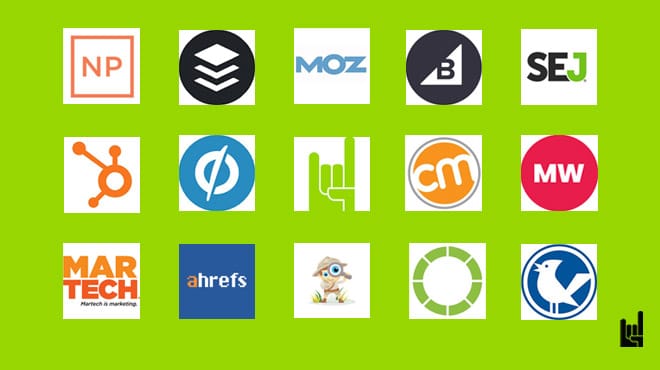“Brain rot”: Oxford Word of the Year 2024
The term “brain rot,” Oxford’s 2024 Word of the Year, highlights concerns about the mental decline attributed to consuming trivial online content. This concept is highly relevant to marketing, especially in the digital era.

A marketer’s responsibility
A marketer’s job often revolves around creating campaigns that stop scrollers, capture attention, and even go viral. These are the hallmarks of success in a crowded digital landscape. However, when a marketer hears terms like “brain rot” being used to describe the effects of consuming low-quality online content, a marketer can’t help but reflect on a marketer’s role in contributing to the digital environment where this term thrives.
The Role of Social Media Platforms
Another important aspect to consider is the responsibility of social media platforms like TikTok and Instagram. These platforms are designed with algorithms that prioritize addictive scrolling behaviors, keeping users engaged for as long as possible. By optimizing their systems to reward frequent engagement and viral content, these platforms play a significant role in creating the conditions that contribute to “brain rot.” While marketers operate within these ecosystems, the platforms themselves set the rules of the game and incentivize behavior that prioritizes quantity over quality.
Don’t shoot the mailman.
First, it’s important to acknowledge that no single marketer is solely responsible for the existence of terms like “brain rot.” The digital ecosystem—shaped by algorithms, platform dynamics, and consumer behaviors—creates an environment that encourages rapid, attention-grabbing content. Marketers are participants in this system, not its sole architects.
Additionally, consumers have the ability to make their own informed decisions. People make choices about the content they engage with, and while marketers’ work may influence those choices, it’s one factor among many. Still, this doesn’t absolve marketers of the responsibility to think critically about the kind of content they are putting into the world.
The Impact of Client Demands
Another critical factor is the responsibility of clients and brands who demand quantity over quality in their content strategies. Many marketing campaigns are driven by the need to produce high volumes of content to maintain visibility, often at the expense of depth and value. This pressure forces marketers to prioritize quick results and engagement metrics over meaningful interactions. While marketers execute these strategies, the push for constant content production often stems from client expectations, making it essential for clients to reconsider their role in shaping the content landscape.
Why Reflection is Needed
The term “brain rot” serves as a call to action for all of us—marketers. It challenges us to think about the broader impact of their campaigns beyond just metrics like views, clicks, or shares. Marketers must recognize that:
- Content Quality Matters: It’s not enough to grab attention. Campaigns should also provide value—whether that’s through inspiration, education, or entertainment.
- Ethics are Essential: Viral success doesn’t have to come at the cost of quality or audience well-being. Marketers can craft campaigns that respect their audience and enrich their experiences.
How Marketers Can Act Responsibly
Rather than feeling guilty, marketers can see this as an opportunity to use their skills more thoughtfully. Here’s how they can approach their work:
- Redefining Virality: Marketers can strive to create campaigns that are memorable not just because they’re flashy, but because they’re meaningful. For marketers, virality isn’t just about numbers; it’s about impact.
- Being Mindful: By striking a balance between creating attention-grabbing content and ensuring that it adds something positive to the audience’s day, marketers can achieve both engagement and value. Humor, storytelling, or visually compelling elements can all achieve this without resorting to clickbait or shock value.
- Prioritizing Authenticity: Instead of relying solely on tactics designed to exploit short-term engagement, marketers can focus on building authentic connections with their audience. This means highlighting real value propositions and telling stories that resonate.
Moving Forward
Terms like “brain rot” are a reflection of broader societal trends, but they also serve as a reminder of the power marketers wield.
Our work shapes the content landscape, and with that comes responsibility. –Theo Moulos (CEO GrowthRocks)
Marketers need not reject attention-grabbing strategies—after all, capturing attention is a key part of the job. But they can ensure that the attention they capture leads to something worthwhile.
Growth and digital marketers can use their skills to create campaigns that respect and enrich the mental landscape of their audience. By doing so, they achieve their professional goals and contribute to a healthier, more meaningful digital environment. This isn’t just about avoiding “brain rot” but being part of the solution.
On the Positive News
Platforms with user-generated content (UGC) have revealed an amazing amount of creativity that was previously hidden from the average person. These platforms have become a gateway for people to share their talents, stories, and perspectives, creating opportunities for learning and connection. They allow us to experience different cultures, ideas, and lifestyles, acting as a window to the world and fostering greater understanding across diverse communities.
PS: last year’s WotY was: Rizz
Was this article useful?

Theodore has 20 years of experience running successful and profitable software products. In his free time, he coaches and consults startups. His career includes managerial posts for companies in the UK and abroad, and he has significant skills in intrapreneurship and entrepreneurship.



